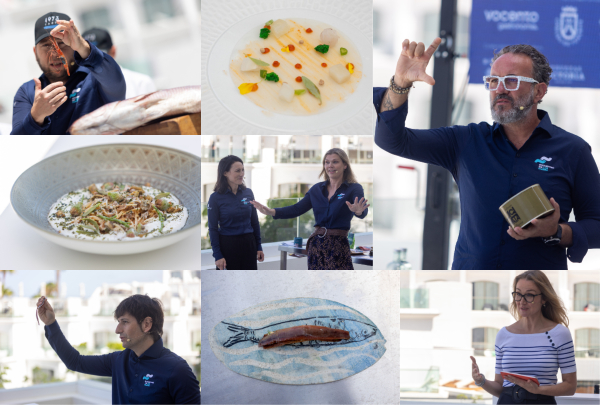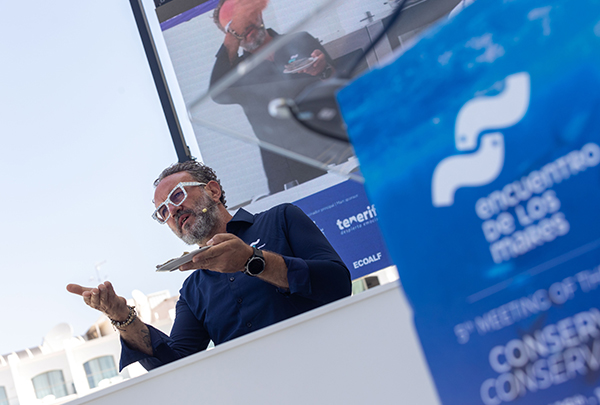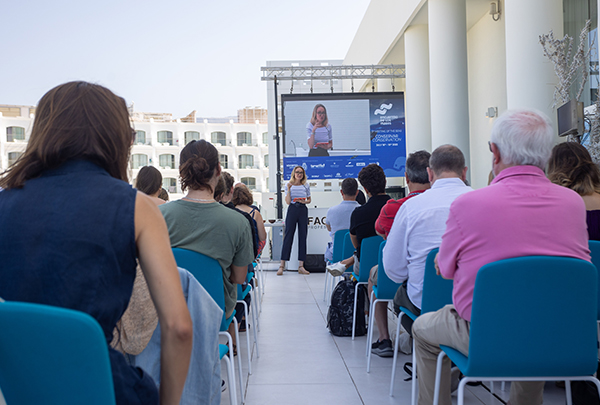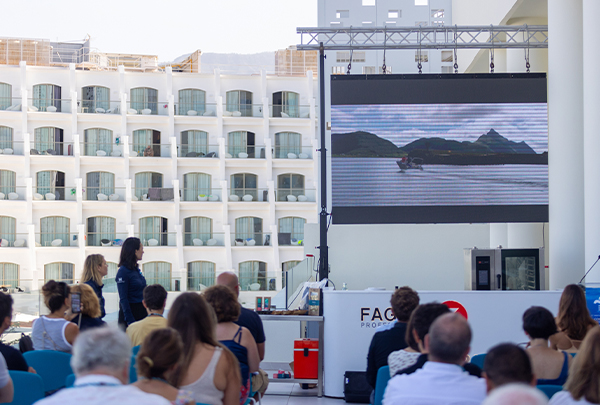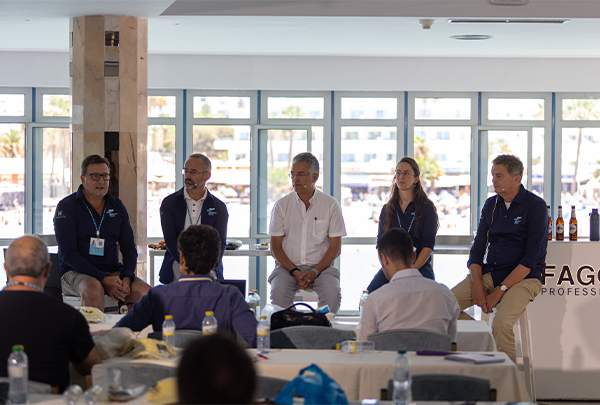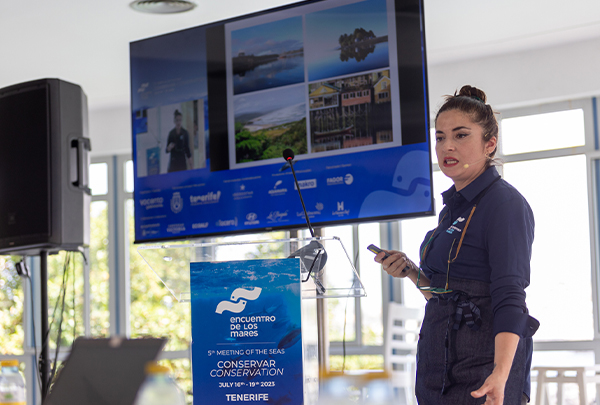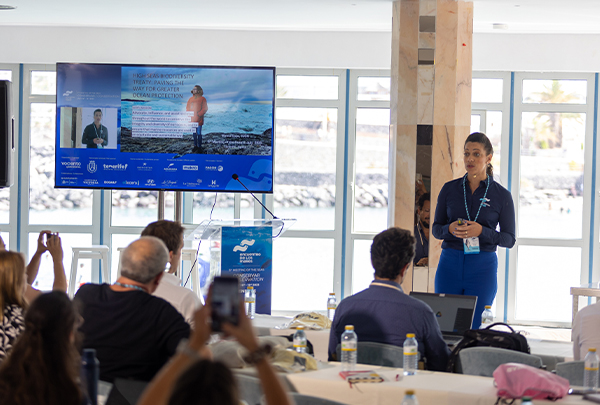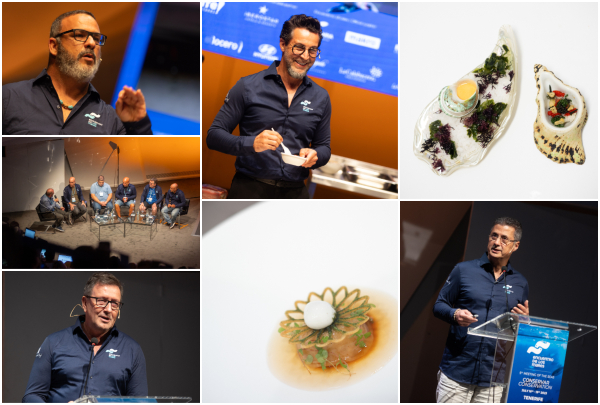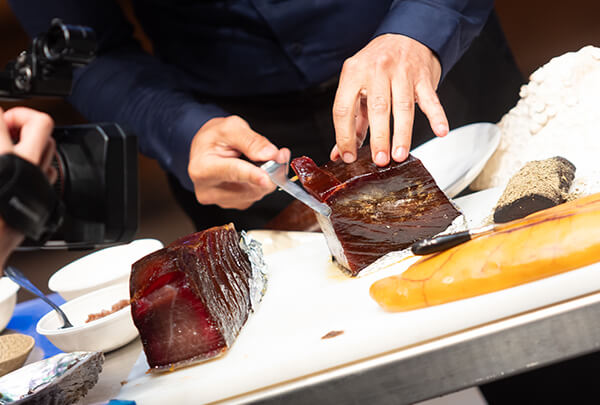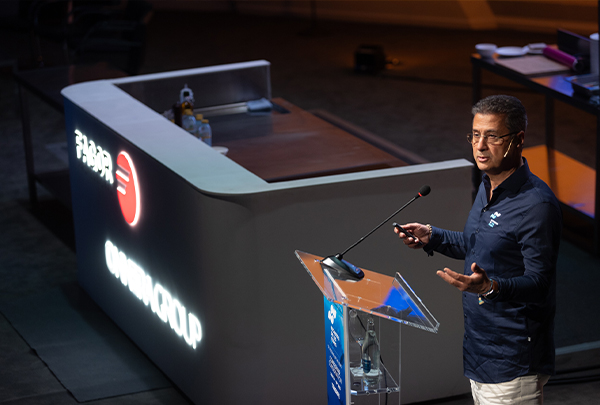News
Meeting of the Seas calls for dialogue between fishermen and the wind power sector for the co-existence of both activities
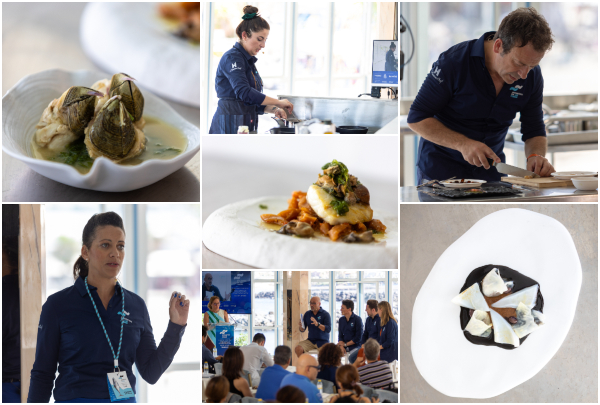
The congress homes in on the urgent need to regulate a compromise between protection of the seas and the exploitation of its resources.
The second day of the fifth Meeting of the Seas began at Club Náutico Puerto Colón (Costa Adeje, Tenerife), and the keynote was the need to protect the two thirds of our oceans which lie outside national jurisdictions, and which contain the greatest portion of biodiversity of this planet.
“It is the Big Blue economy that now has the greatest growth projection, and we must ensure that it will be sustainable. It accounts for 95% of the planet's inhabitable space and it's in danger, and so we must work quickly to restore its health", declared Minna Epps, one of the world's leading experts in marine biodiversity, currently running the Global Marine and Polar Programme for the International Union for Conservation of Nature (IUCN), an intergovernmental organisation working with local communities to establish global procedures. To bring this about, one vital factor was the recent signature of the High Seas Biodiversity Treaty, which finally provides a mechanism to establish protected maritime areas in sections of ocean beyond the control of each country, and guarantees sustainable use of their biodiversity. But Epps feels that approval of the Treaty is not the end of it all. Quite the opposite, in fact - she believes that it is a starting point to address the next challenges and problems concerning protection of the oceans, "such as the establishment and approval of legal frameworks concerning human activity, monitoring and controlling this, and also all aspects concerning funding, particularly in terms of maintaining protected marine areas. It entails a huge investment, but the socio-economic benefits are enormous", she concluded.
More pressure is being brought to bear on our oceans in the shape of the conflict between sea wind power and fishing, and this was discussed at one of the event's round tables, demonstrating the need for the co-existence of all sea-related activities. Marine environmentalist Eline van Onselen works for the North Sea Foundation on pilot wind power projects in the North Sea, and she explained that "the installation and functioning of wind power plants lead to the loss of habitats, collisions of birds with wind turbines, sea noise, changes to currents and stratification ... in a word, changes to the ecosystem". However, in relation to this problem she also remarked that "there are alternatives to offset these effects, on the basis of a holistic international and intersectoral perspective, based on respect for nature and global togetherness to minimise the impact". Another major expert in the North Sea case is Willem Visser, director of Blue Port Centre Den Helder, who agreed with her, and concluded that "environmentalism and fishing should be reconciled, to guarantee the feasibility of both in the sea".
Meanwhile, José Pascual, director of La Laguna University's Social Research and Tourism Institute, remarked that there should be some comprehension of the reaction of the fishermen to what they see as the occupation of their spaces by wind power plants. He added that in reality "the collision of various interests has come about due to a lack of a process of dialogue to reach a consensus between both parties. It is essential to reach a compromise", he said. Once more, dialogue is a key factor.
The impact of the disappearance of marine habitats, however, not only has a direct impact on the environment and on the fishing sector, and it can also entail the loss of basic marine genetic resources to bring about major progress in a number of fields. Jesús Arrieta, senior scientist at the Canary Islands' Oceanographic Centre IEO-CSIC, explained that "marine genetic resources are considered a valuable source of innovative ingredients for a range of industries, such as biotechnology, cosmetics and pharmaceuticals", but "we do not know most of these organisms, and it could take us thousands of years to find out about them". And so, "we have to protect what we don't know so that we can find out about all of them before some of them become extinct", warned Arrieta.
Larders in different seas
Gastronomy was also a feature of the event to underline the singularity of each marine space. Step forward Chilean chef Lorna Muñoz, who told the congress that in the Chiloé archipelago (where her restaurant Travesía is located) they have “an enormous marine larder with a large variety of sea products, many of which are amazing, simply due to the specific characteristics of our interior sea. A sea that picks up water from glaciers and also from the Pacific Ocean”.
But it is not only the characteristics of the region's sea that shapes Chiloé's cuisine - the climate also has an effect. “It's very cold in Chiloé, and the bad weather has traditionally led us to concentrate a lot on conservation techniques", Lorna Muñoz went on. This "sea-edge" culture is based on traditional cookery in which smoking and drying and food salting are common conservation techniques to transport or store produce.
From the Cantabrian Sea, chef Nacho Manzano (Casa Marcial**, Arriondas, Parres, Asturias) also pointed out the strong influence of the sea on his cooking, demonstrating this with several recipes from his current menu which, "almost by accident", is almost entirely sea-based.
The congress continued during the afternoon with a round table to discuss the richness of the sea around Tenerife, its tunny fish and cetaceans, and the fishing sector. A round table which linked into the previous session, debating the need to adopt more sustainable fishing models to eliminate overfishing in seas and oceans. An urgent measure, according to marine biologist Sonia Español Jiménez, executive director of the Meri Foundation in Chile, who firmly believes in scientific studies which reveal that "we're at a point of no return, because in the next few decades, 1 out of 4 species will become extinct if we don't change the way we live".

